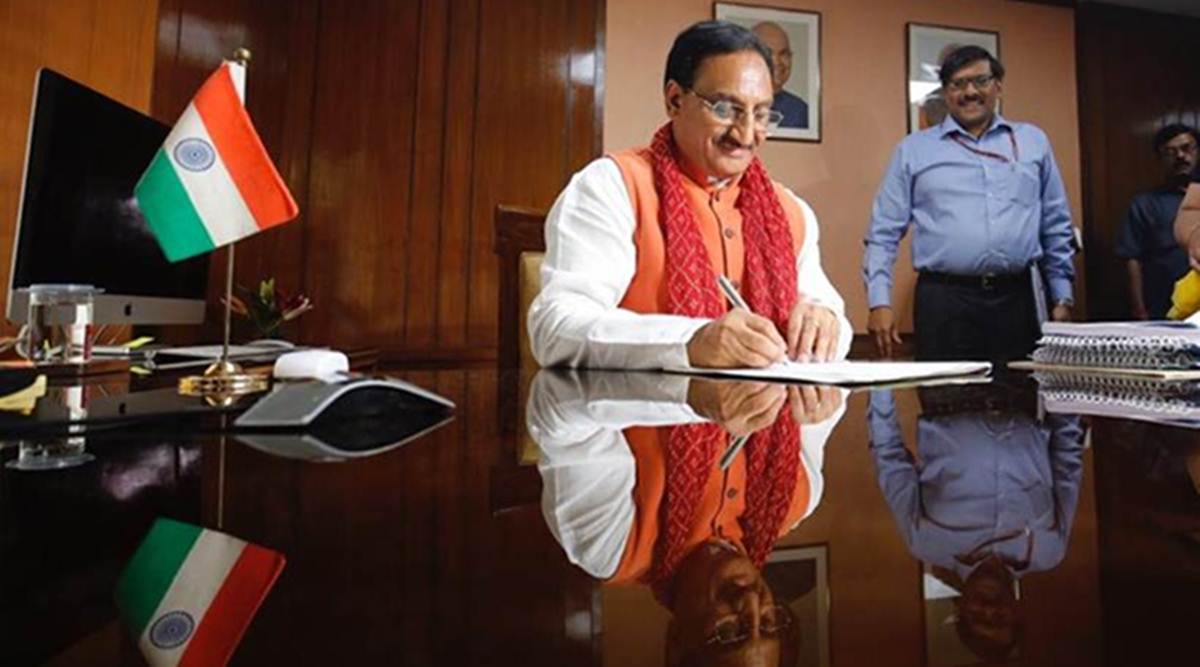 The draft was put in the public domain for around six months for feedback “so that nobody can say that I wasn’t consulted and a committee of a select few imposed it on the country”, he said. (File)
The draft was put in the public domain for around six months for feedback “so that nobody can say that I wasn’t consulted and a committee of a select few imposed it on the country”, he said. (File)FROM THE village pradhan to the Prime Minister, the nationwide consultation process to create the National Education Policy ensured everyone’s participation to avoid complaints that it was imposed by a select few, Union Education Minister Ramesh Pokhriyal Nishank said at the Express Adda Tuesday.
Asked how had he been able to insulate the policy from ideological pressures, Nishank said: “This is the policy of the entire country, from the Village Pradhan to the Prime Minister, from the village to the Parliament, from the state legislator to the Parliamentarian, and from the Education Minister to the Chief Minister.”
Nishank said the government “held comprehensive consultations” with all stakeholders, including students, teachers, professors, parents, educational experts, NGOs, states and Parliamentarians. “It is probably the world’s largest innovation and consultation process. It had everybody’s participation,” he said.

The draft was put in the public domain for around six months for feedback “so that nobody can say that I wasn’t consulted and a committee of a select few imposed it on the country”, he said.
Nishank said the policy does not “impose” any language on students, but gives them the freedom to study as many languages as they want. The Education Minister said “some people have a misconception that we are anti-English”. He said the government wants to strengthen all 22 languages mentioned in the Eighth Schedule of the Constitution.
When asked about the government allowing foreign universities into the country, despite the BJP’s earlier aversion to such a move, Nishank said, “What has changed is that they will come on our terms, earlier it was that they may have come on their terms.”
He said that nearly 7.5-8 lakh Indian students go to study abroad every year, which means Rs 1-2 lakh crore is going to foreign countries annually. “It means our talent and our money is going out,” he said.
“You will find many countries where Indian talent has played a large role,” in their development, which is why the government wants to retain students here, he said. “It will save the country’s money and the country’s talent,” he said.
Education, Nishank said, is the backbone of any nation and society, and the government wants to strengthen it with the New Education Policy 2020, which he mentioned, can be defined by five Is: Indian, International, Interactive, Impactful and Inclusive. The policy, he said, will be based on the principles of “equality, quality and access” and will “change the country”.